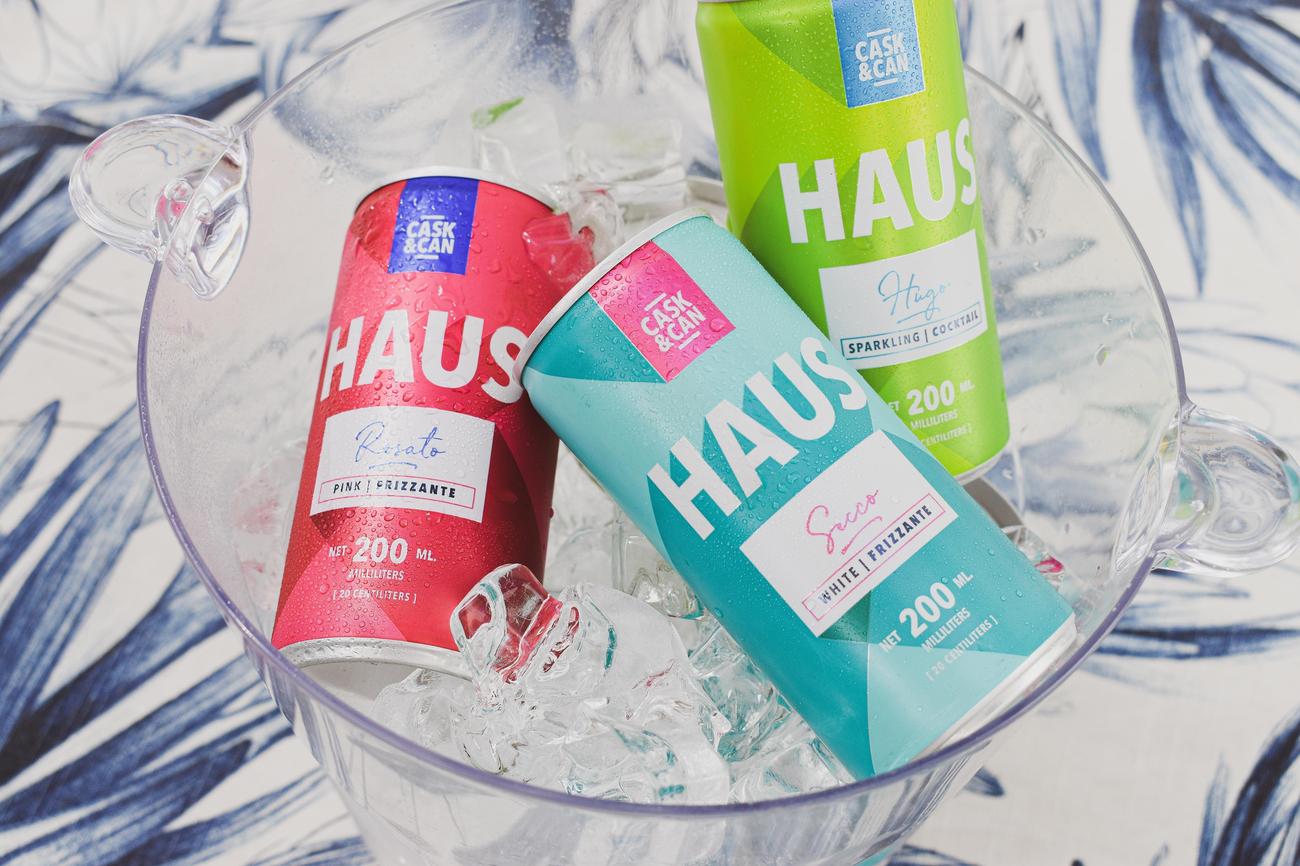Are you ready to dive into the fascinating world of aluminum cans? Get ready to uncover some captivating fun facts that will leave you amazed! In this article, we will explore the unique aspects of aluminum cans and their significance in the global packaging industry. As a seasoned environmental journalist with a passion for sustainability and waste management, I have delved deep into the realm of recycling and resource conservation, gaining an in-depth understanding of these sleek and shiny containers. With my research skills and ability to communicate complex information in an engaging manner, I am here to provide you with an informative and entertaining exploration of the intriguing universe of aluminum cans. So buckle up and get ready for an exciting journey filled with surprising discoveries!

Fun Facts About Aluminum Cans
Aluminum cans, those familiar containers that hold our favorite beverages, are much more than just a convenient way to enjoy a refreshing drink. They have a fascinating story and impressive characteristics that contribute to their role as a sustainable packaging solution. Let’s dive into some intriguing facts about aluminum cans and discover the hidden wonders behind these shiny containers.
Pound for Pound, the Can Recycling Champion
Did you know that a pound of aluminum today can produce approximately thirty aluminum cans? That’s quite an improvement compared to twenty years ago when it only made twenty cans. This remarkable efficiency highlights the advancements in recycling technology and the commitment of the packaging industry to achieve sustainability goals. Aluminum cans truly shine as a recycling champion!
“A pound of aluminum today can make approximately thirty aluminum cans, compared to twenty cans twenty years ago.”
Thinner than a Human Hair
When you hold an aluminum can in your hand, you might not realize that the thickness of the can’s side is about the same as that of a human hair. Can you imagine that? It’s astonishing how something so thin and delicate can provide robust protection for our favorite beverages. This shows the ingenuity of aluminum cans in maximizing strength while minimizing resources.
“The thickness of the side of an aluminum can is about the same as that of a human hair.”
Aluminum’s Long-Lasting Legacy
Have you ever wondered how long it takes for an aluminum can to break down naturally? Brace yourself: it takes about 400 years! This remarkable durability highlights the importance of aluminum recycling. By recycling aluminum cans, we can prevent them from clogging up landfills and instead give them new life, reducing the demand for raw materials and energy.
“It takes about 400 years for aluminum to break down naturally.”
Cheers to Billions of Aluminum Cans
Raise your can in celebration because aluminum cans play a significant role in quenching our thirst. The world’s beer and soda consumption accounts for a staggering 180 billion aluminum cans every year. That’s a lot of fizzy drinks, isn’t it? This enormous demand showcases the trust that consumers place in aluminum cans as a reliable and beloved choice for packaging beverages.
“The world’s beer and soda consumption uses about 180 billion aluminum cans every year.”
Unrivaled Protection for Delicious Delights
Aluminum cans not only keep our drinks cool and refreshing, but they also provide exceptional protection against various external factors. With their hermetic seal, aluminum cans deliver 100 percent safeguarding against oxygen, light, moisture, and contaminants. This means that the flavors and quality of your favorite beverage are preserved perfectly until the moment you crack open that can.
“Aluminum cans provide long-term food quality preservation benefits by delivering 100 percent protection against oxygen, light, moisture, and other contaminants.”
Recycled to Infinity and Beyond
When it comes to recycling, aluminum cans are true superheroes. Close to 70% of all aluminum drink cans are recycled globally, making them the most recycled drinks container on the planet. Any item made of aluminum, from cans to foil, food trays to window frames, and even automotive components, can be recycled repeatedly. Aluminum’s infinite recyclability demonstrates its outstanding environmental benefits.
“Close to 70% of all aluminum drink cans are recycled globally, making them the most recycled drinks container on the planet.”
A Recycling Race Against Time
Recycling aluminum cans is a race against the clock. In just one minute, an average of 113,200 aluminum cans are recycled worldwide. Isn’t that mind-blowing? The majority of these cans will be transformed into new cans in a matter of weeks, demonstrating the circular journey of aluminum and the speed at which recycling processes can turn used cans into valuable resources.
“Every minute, an average of 113,200 aluminum cans are recycled.”
In conclusion, aluminum cans are not just ordinary containers; they possess a fascinating history and jaw-dropping traits. From their efficient recycling capabilities and incredible durability to their unmatched protection and global recycling rates, aluminum cans continue to play a crucial role in sustainable packaging. So the next time you hold an aluminum can in your hand, take a moment to appreciate the remarkable journey it has taken. Cheers to the humble yet extraordinary aluminum can!
Aluminum is a fascinating metal that has numerous applications in various industries. If you’re curious to learn more, we’ve got you covered with 5 amazing facts about aluminum. From its lightweight and durable nature to its excellent conductivity properties, aluminum truly stands out in the world of metals. So, why wait? Click here to uncover all the exciting details about this versatile material: 5 facts about aluminum.
Fun Facts About Aluminum Cans
Aluminum cans have been an essential part of our lives for years, but did you know that they hold some interesting secrets? Let’s explore the fascinating world of aluminum cans and uncover some intriguing facts you probably didn’t know.
First up, we have the keyword “interesting facts about aluminum cans.” Imagine discovering hidden gems about these cans that will leave you awestruck! Click here to satisfy your curiosity and uncover the wonders of aluminum cans: interesting facts about aluminum cans.
Next on the list, we have the keyword “amazing facts about aluminum cans.” Prepare to be amazed as you delve into the captivating realm of aluminum cans. Discover unbelievable feats achieved by these seemingly ordinary objects. Are you ready to be astonished? Then click on this link: amazing facts about aluminum cans.
Lastly, we have the keyword “surprising facts about aluminum cans.” Brace yourself for a rollercoaster ride of surprises as we unravel the unexpected side of aluminum cans. From innovative recycling techniques to incredible statistics, these facts will leave you in awe. Don’t miss out on this adventure; click here to embark on a journey of surprises: surprising facts about aluminum cans.
Remember, the world of aluminum cans is full of wonder, and each click will unveil a new fascinating fact. So go ahead and explore these links to uncover the hidden marvels of these remarkable containers.

FAQ
Q: How many aluminum cans can be made from a pound of aluminum today compared to twenty years ago?
A: Today, a pound of aluminum can make approximately thirty aluminum cans, compared to twenty cans twenty years ago.
Q: How thick is the side of an aluminum can?
A: The thickness of the side of an aluminum can is about the same as that of a human hair.
Q: How long does it take for aluminum to break down naturally?
A: It takes about 400 years for aluminum to break down naturally.
Q: How many aluminum cans are used for beer and soda consumption worldwide each year?
A: The world’s beer and soda consumption uses about 180 billion aluminum cans every year.
Q: What percentage of aluminum drink cans are recycled globally?
A: Close to 70% of all aluminum drink cans are recycled globally, making them the most recycled drinks container on the planet.
- Identify Black and White Snakes: Venomous or Harmless? - April 20, 2025
- Unlocking Potential: Origins High School’s NYC Story - April 20, 2025
- Period Quiz: Predict Your First Period - April 20, 2025















